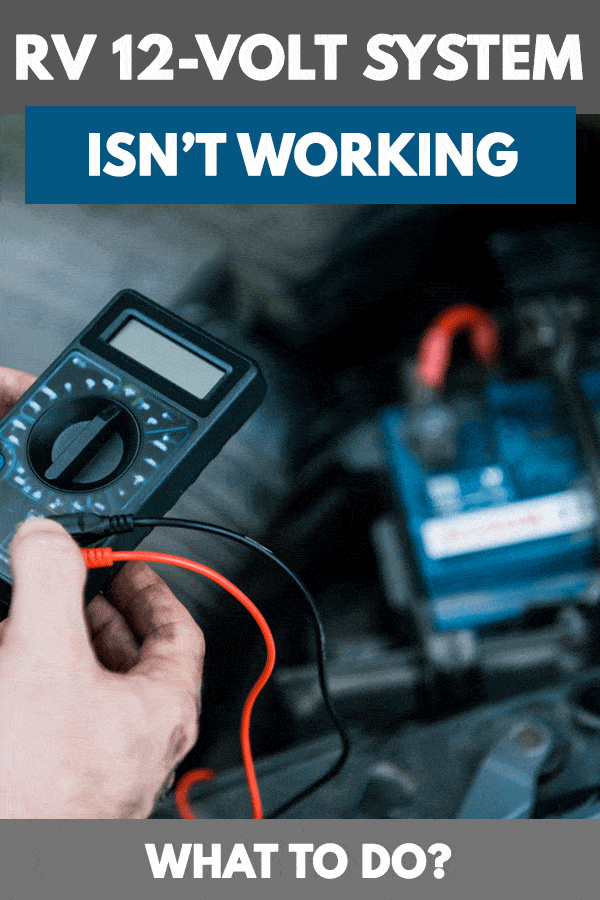You rely on your RV’s 12-volt system to power such necessities as your water pump, fridge, and water heater. Thus, when it doesn’t work for any reason, it’s majorly inconvenient. Given that your 12-volt system runs on batteries, you might think it’s easy enough to figure out the issue, but you’re having more of a tough time than anticipated. What’s wrong with your 12-volt system and how can you fix it?
To repair your 12-volt system, you’ll have to diagnose the problem first through troubleshooting. The issues that you can run into are:
- Dead batteries
- Burnt out inverter/converter fuse
- Loose inverter/converter connections
- Undercharged batteries
- Lack of fluid in the batteries
- Loose DC battery connections
- Tripped breaker
- Unplugged from shore power
In this article, we will elaborate on each of the problems you may deal with as the owner of an RV. We’ll also tell you when you should fix the matter yourself and how to. As a warning, because your 12-volt system is electrical, you do put yourself at risk of serious injury or even death by messing with the system. It’s often better and safer to call an electrician.
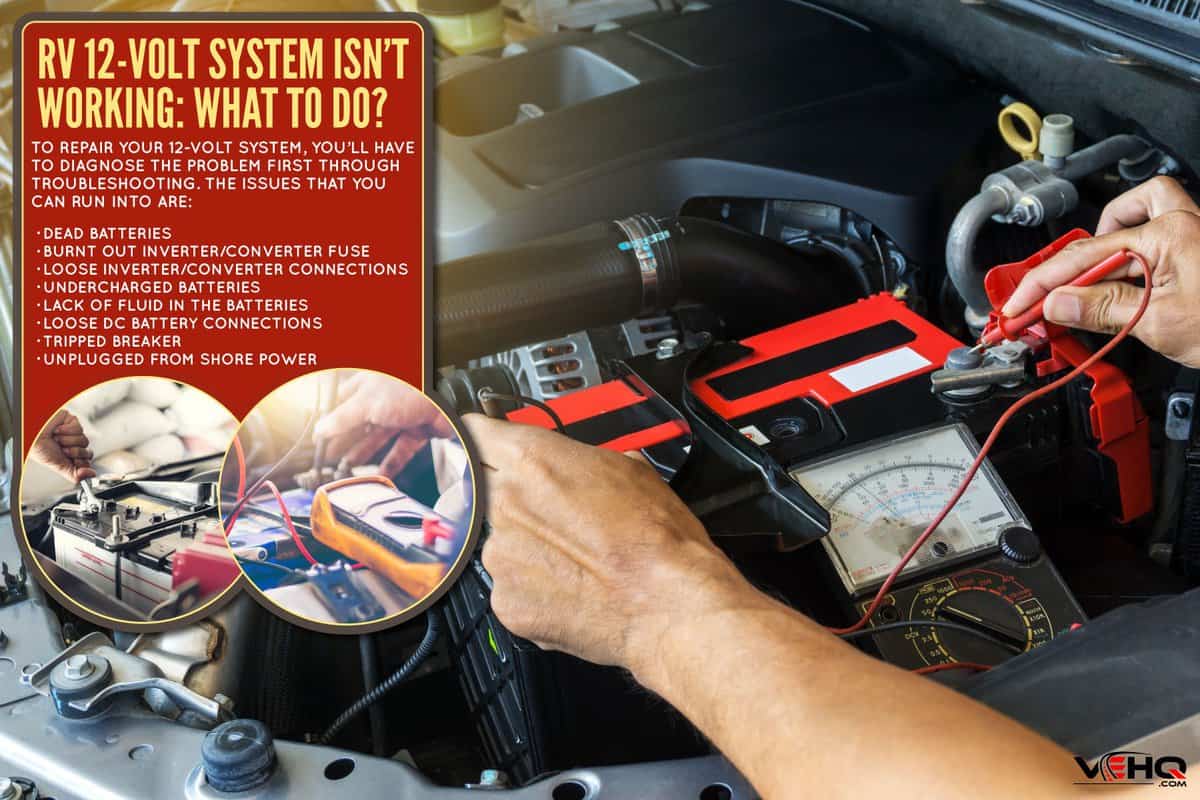
What to Do When Your RV’s 12-Volt System Isn’t Working
Problem: The batteries are dead.
As we touched on in the intro, your 12-volt system relies on a battery. Depending on the system, sometimes several batteries provide the juice you need so you can run your everyday appliances and items. Regardless of how many batteries the system has, they all have to equal 12 volts. That can mean a single 12-volt battery or two six-volt batteries.
It’s actually better to have more than one battery in your 12-volt system since it prolongs battery life. That said, all batteries can and do die eventually without proper care.
Solution: Recharge them and monitor their levels so they don’t die completely again.
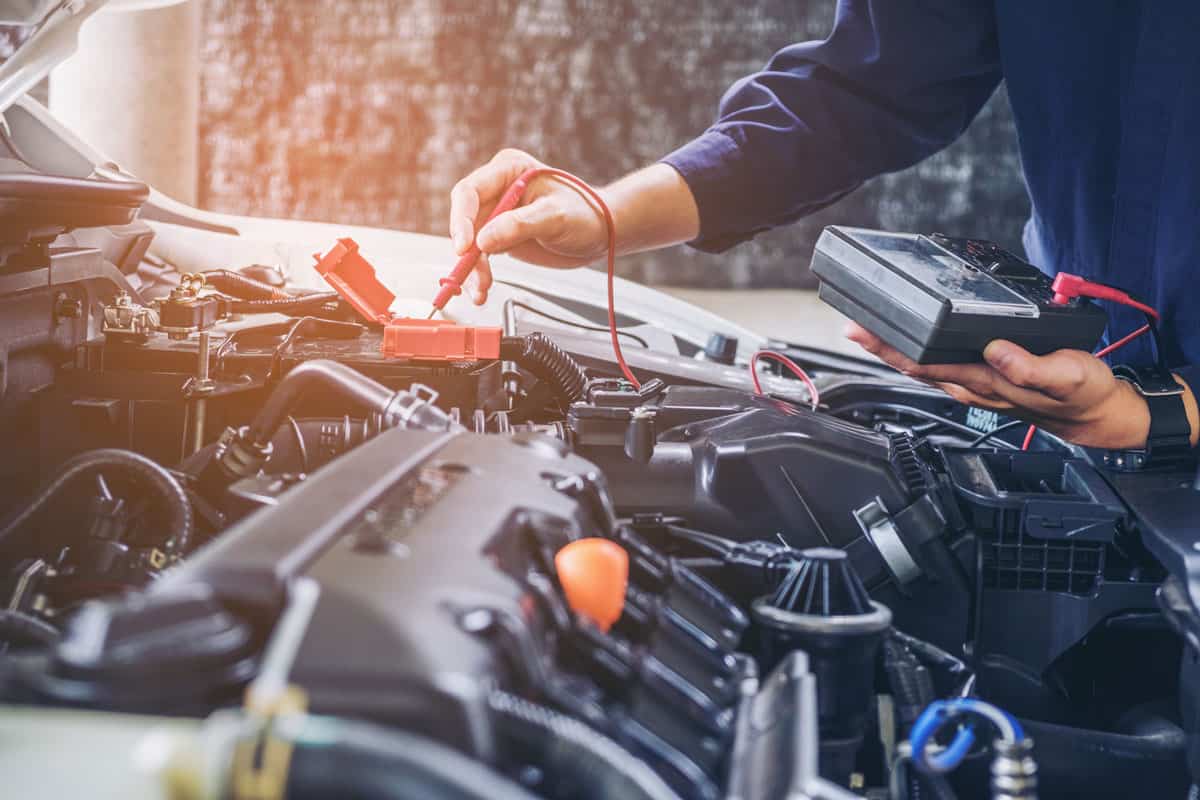
If you’ve never been introduced to your 12-volt system batteries before, now’s as good a time as any to get familiar with this part of your RV. You need to monitor the battery life like you would with anything else with a battery, such as your smartphone. When the batteries drain about halfway, it is time to begin charging them up. This way, you never have to go without necessities in your RV.
Problem: The inverter/Converter fuse(s) have loosened or burnt out.
Your RV doesn’t only use 12-volt power. It also has a 120-volt system that lets you run other appliances and your TV. With an inverter/converter, you can take 12-volt power (direct current or DC) and make it into 120 volts of alternate current or AC power and then back again. Well, you could do that if your inverter/converter worked. It doesn’t.
Solution: Get the fuses tightened or replaced.
The inverter/converter fuses can loosen with time. They can also burn out if they get overworked. Depending on the converter you own, yours might have a single fuse or up to two. Look at the converter’s front to find the fuses. If your fuses are on the fritz, then we recommend you enlist the help of a professional electrician to get them fixed.
The electrician can diagnose the issue and determine whether it’s a loose fuse or a dead one. If you need a new inverter/converter, that should hopefully put your 12-volt system problems behind you.
Problem: Your batteries aren’t fully charged.
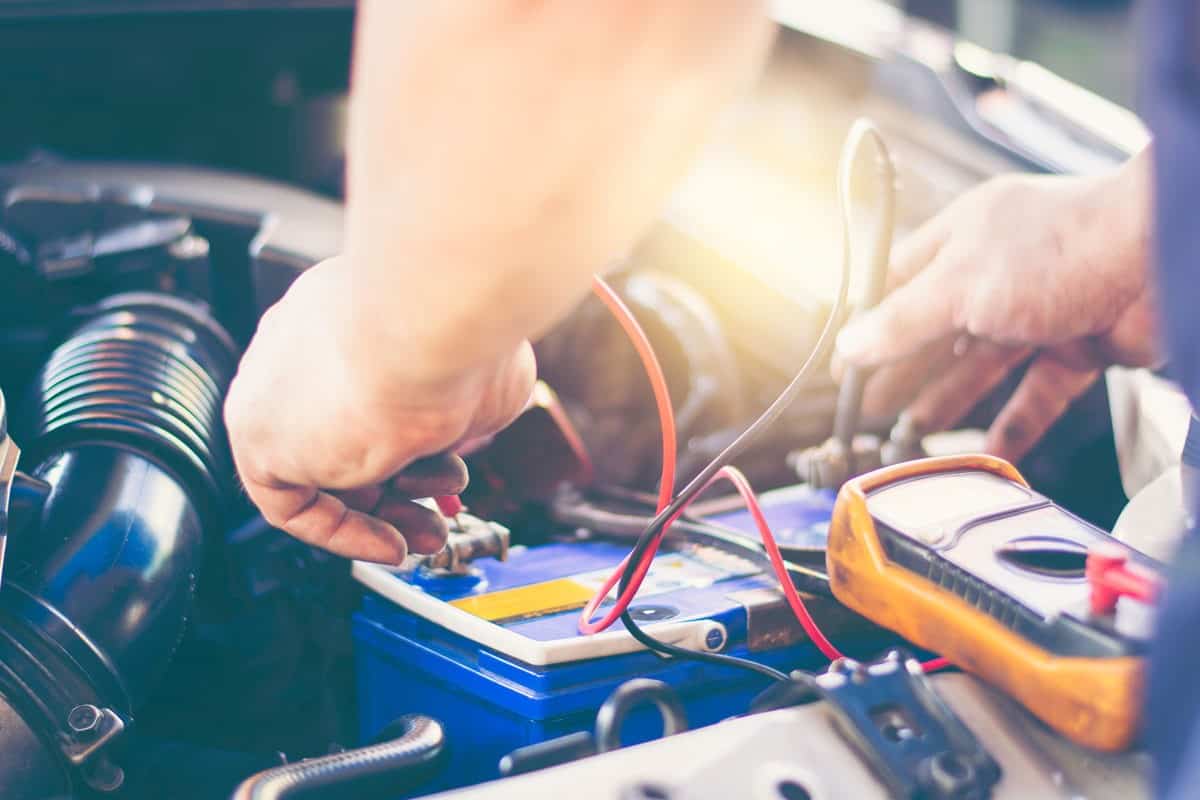
Your 12-volt system works best when the battery is as close to fully charged as possible. If your batteries are too low, then that can affect the performance of the system, sometimes preventing the system from working at all.
Solution: Have some patience and let them charge all the way.
There’s not much to do here except wait until the batteries charge. We do want to reiterate the importance of getting on a good battery charging schedule. This way, you won’t find yourself in a bind like this again.
Problem: Your batteries won’t take a full charge anymore.
Okay, but what if you let your batteries charge for hours and hours and they just don’t get a full charge? Come to think of it, it’s been quite a while since your batteries have reached 100 percent.
Solution: Strongly consider replacing them.
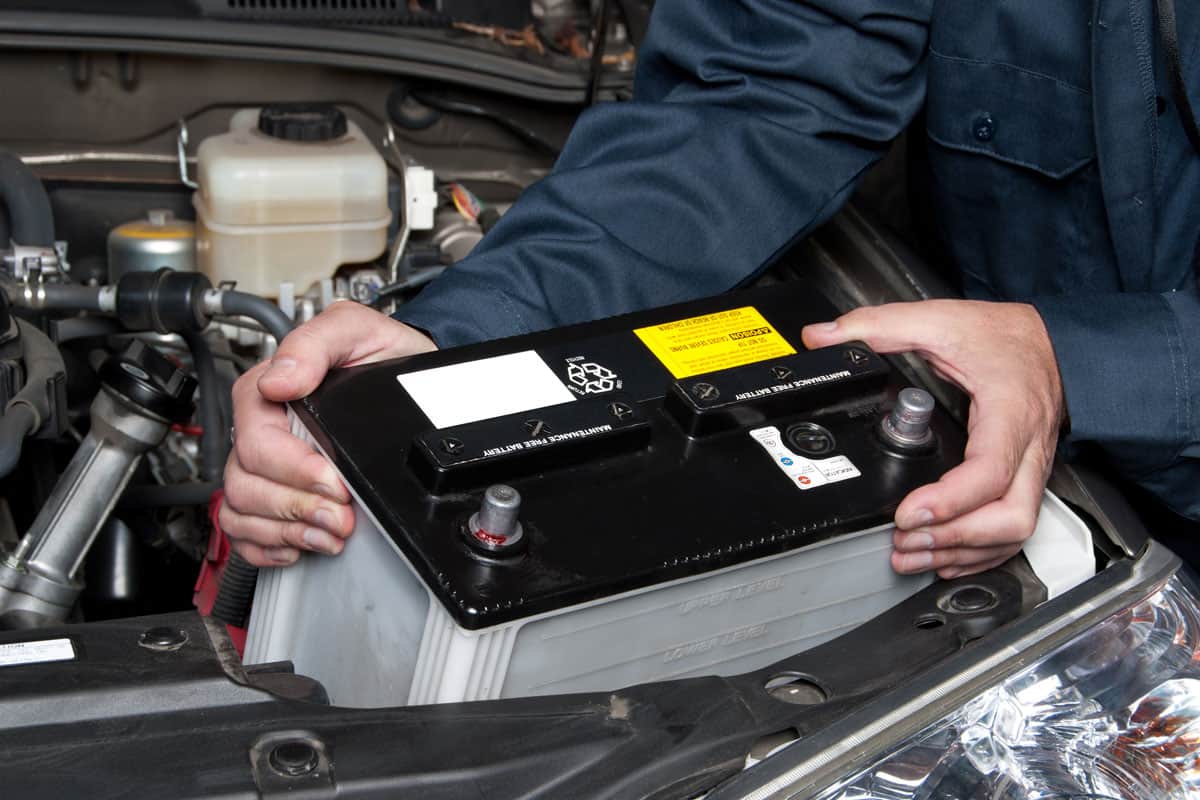
If you’re comfortable, you can look at the batteries yourself or let an electrician do it. Keep your eyes peeled for any loose connections that may prohibit your batteries from charging. You also want to make sure your batteries have enough fluid (more on this in just a moment).
Should you find no issues with the battery connections or the fluid levels, then the batteries could be toast. It happens sometimes. If another set of batteries will charge no problem, then you know it’s not an issue with the 12-volt system, but rather, the original batteries themselves. It’s time to buy some new ones.
Problem: Your batteries won’t work even though they’re charged.
You could have more trouble still with your batteries. For instance, they’re charging just fine and you let them get to a full charge. The problem is, you’re still not getting any power from the 12-volt system. Your appliances don’t work, and it’s getting on your nerves.
Solution: Top them off with distilled water.
Your RV batteries have electrolytes in them. The composition of these electrolytes is water (roughly 60 percent) and sulfuric acid (the other 40 percent). The plates of your battery, those that are negative and positive, will make lead sulfate as you discharge your battery. When this happens, sulfuric acid lessens, but you can restore it by charging.
When your battery overheats and gets overworked, it loses water through evaporation. That’s why your battery could stop working. The simple solution to this problem is to add distilled water to the battery until it’s topped off. Easy-peasy!
Problem: The DC battery connection is loose.
This becomes more likely if you have more than one battery in your 12-volt system. The batteries attach via wires and are then housed into a parallel circuit. Sometimes this wiring can get a little loose, so the batteries seem disconnected even though they’re fully charged and otherwise working fine.
Solution: Tighten it back up or get a new parallel circuit.
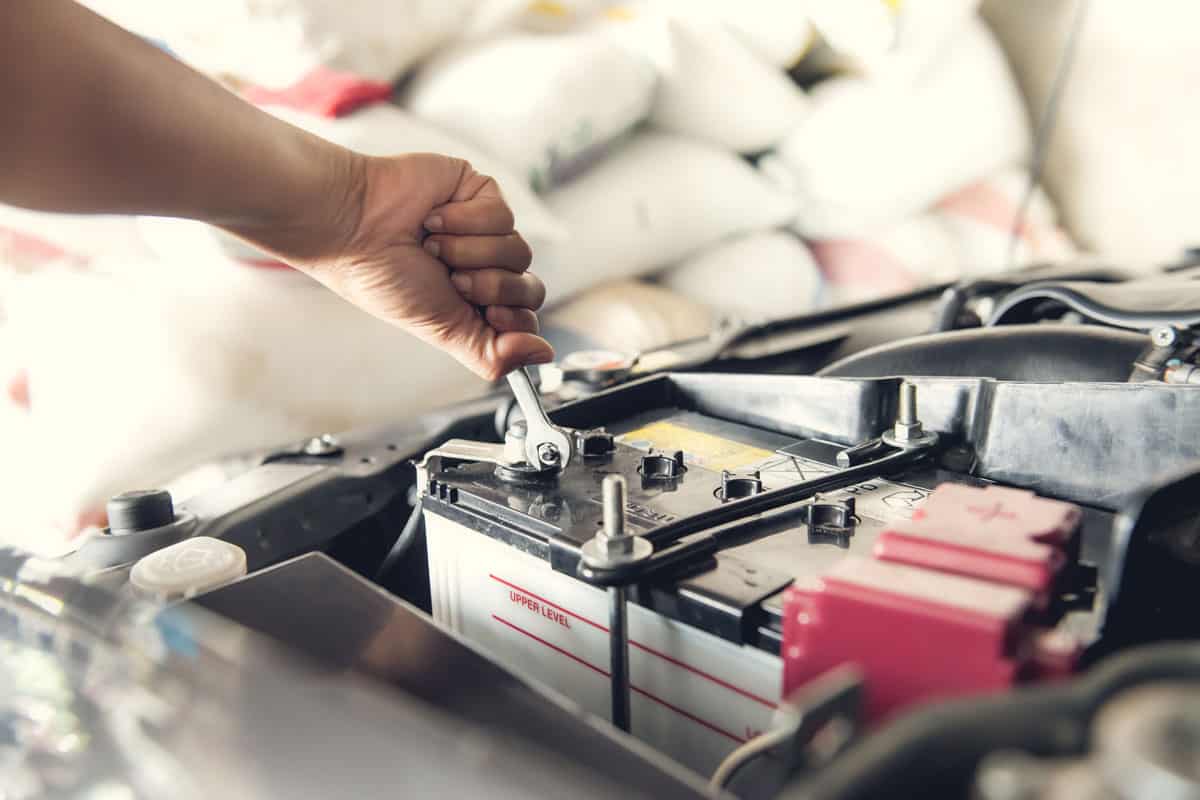
We don’t recommend you get into your parallel circuit yourself unless you know what you’re doing. Even then, you’re still at risk of electrocuting yourself. You will need to call an electrician to come by and check out the 12-volt system’s parallel circuit.
The electrician can determine if there’s a problem with your batteries or if the parallel circuit is to blame. If tightening the wires doesn’t help, then yes, you will indeed have to get a new parallel circuit. Your electrician can more than likely install this for you.
Problem: Your 12-volt system’s breaker tripped.
You know better than to run several appliance and items on the 12-volt system at once, hopefully. If not, then you might find out the hard way not to do that when the system’s breaker trips.
Solution: Reset the breaker and use the 12-volt system more smartly in the future.
Luckily, by resetting the breaker, you should get things up and running again in no time. That said, you will easily trip the breaker again if you continue misusing your 12-volt system. Not only does this kind of strain affect your breaker, but it can deplete water in your batteries, degrading performance. Thus, you’re even more likely to run into future problems with your 12-volt system!
Problem: Your 12-volt system STILL isn’t working!
You’ve tried pretty much everything you can think of and nothing has worked. Even all the above troubleshooting still hasn’t fixed your 12-volt system. What gives?
Solution: Check that it’s plugged in.
This is one of the more obvious solutions, but sometimes those are the easiest to overlook. Have you checked that your RV is plugged into a source of power? Without shore power, you won’t have lights, appliances, heating, AC, TV, and the whole lot for very long. Not only will your 12-volt system not work, neither will the 110-volt system.
What if you triple-checked that your RV has shore power but you still can’t get your 12-volt system working (or probably much else in your RV, for that matter)? We recommend some troubleshooting in another article on our blog.
Read more: RV Plugged in but No Power? Here’s What to Do
To recap that article, here are the areas you should focus on:
- Your outlets and the breaker, especially the wires in the breaker (you might want to call an electrician for this)
- The inverter/converter and the power cord or power transfer switch, see if you can get any juice here
- The diagnostic lights, which would let you know if even the surge protector has any power
- The batteries to ensure they’re not dead or damaged
- The ground fault circuit interrupter or GFCI, which can trip
Per that article, you should also try resetting the RV breaker after unplugging from the source of shore power. Reset your breakers, too, both those for the 12-volt and 110-volt systems. You may have to reset your GFCI as well.
Conclusion
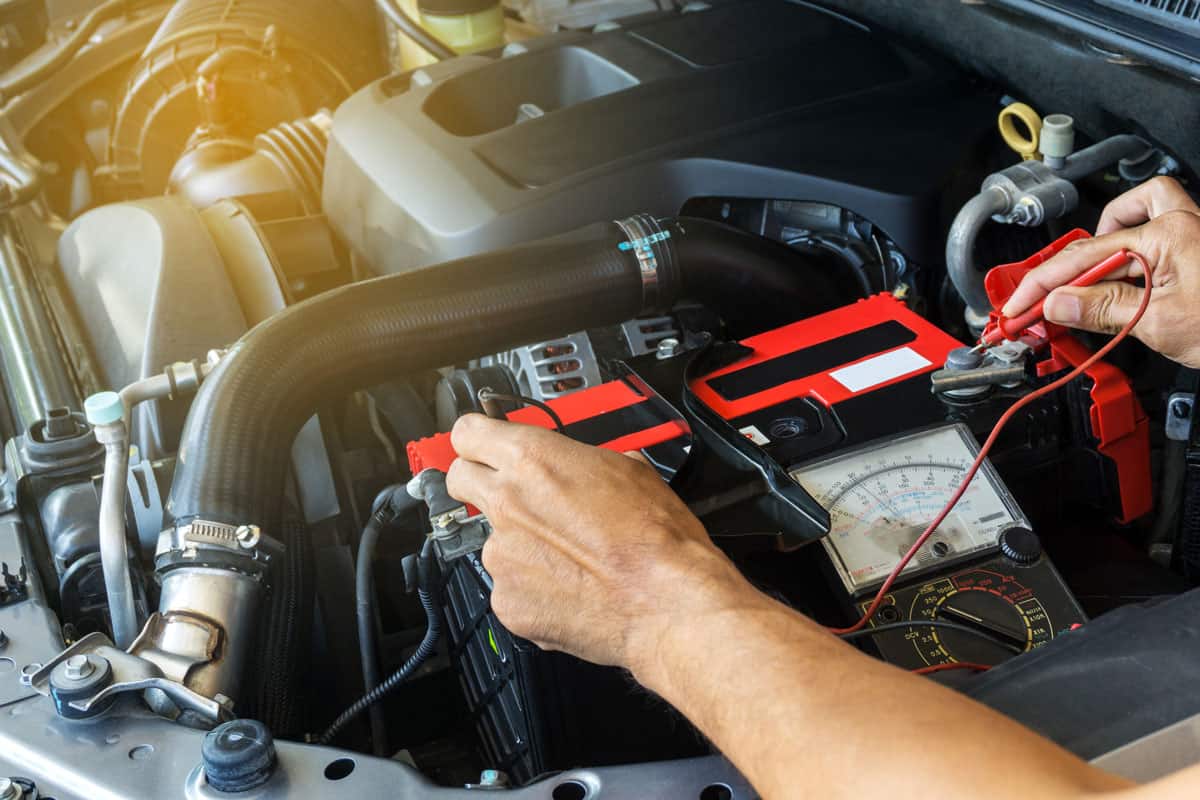
Given that your RV’s 12-volt system works on batteries, any dead, damaged, or undercharged batteries could make your system stop running. Your inverter/converter could also cause problems if the fuse burns out or the wires loosen. Sometimes, common-sense solutions like being unplugged from shore power or having a tripped breaker are what’s causing your issue.
With the guidance in this article, you can get to the bottom of your 12-volt system problems so you can use your favorite items and appliances again. Good luck!
And just for when you get that 12V system going, here are a few of our posts about awesome RV appliances that run on 12V -
15 12-volt coffee makers for RV's (And other options for a Cup of Joe)
7 Great 12v ceiling fans for RV's (And what you need to know before you buy one)
12 Best Mini Camper Fridges for Your RV
And you might also want to check out this list of Types of RV Appliances (And How Much Power They Need)
